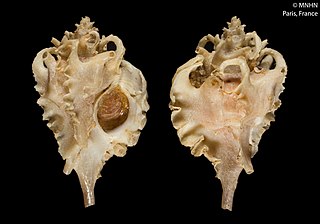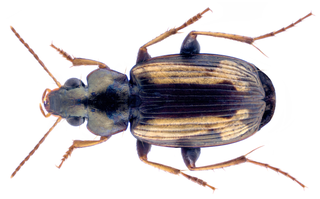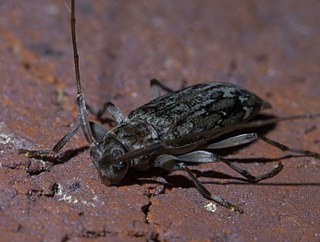
The Hydroscaphidae are a small family of water beetles known commonly as skiff beetles. As of 2010, there are 23 species in the family. Several are recently described.

Joseph Le Conte was a physician, geologist, professor at the University of California, Berkeley and early California conservationist.

Hygrotus is a genus of beetle in family Dytiscidae. It contains two subgenera and about 70 species, including:

Harpalus is a genus of ground beetle first described by Pierre André Latreille in 1802.
Vrilletta is a genus of beetles in the family Ptinidae.

Melandryidae is a family of beetles in the superfamily Tenebrionoidea. Members of the family are found worldwide, with around 420 species in 60 genera. Larvae and adults are generally associated with rotting wood and wood-decomposing fungi.

Chauliognathus is a genus of soldier beetles in the family Cantharidae. Adults have almost rectangular bodies. Some are red and black, similar to the military uniforms that were common before the usage of camouflage, hence the name of soldier beetles. Others are orange and black. The elytra or first pair of wings are softer than the elytra of most beetles, that is why their other common name is leatherwings. The adults are frequently found on flowers, such as sunflowers, goldenrod, coneflowers, where they mate and feed on pollen and nectar. The larvae are more common in the ground or among debris, where they feed on eggs or larvae of other insects. The adults are most frequently found in summer and early fall. They are native to America and Australia.

Typhina is a genus of sea snails, marine gastropod mollusks in the subfamily Typhinae of the family Muricidae, the murex snails or rock snails.

Tetragonoderus is a genus of beetles in the family Carabidae, containing the following species:

Lepturges is a genus of longhorn beetles of the subfamily Lamiinae. It was described by Henry Walter Bates in 1863.

Phymatodes is a genus of beetles in the family Cerambycidae, containing the following species:
Hyboderini is a tribe of beetles in the subfamily Cerambycinae, containing the following genera and species:
Tetragonoderus intermedius is a species of beetle in the family Carabidae. It was described by Solsky in 1874.

Lytta is a genus of blister beetles in the family Meloidae. There are about 70 described species in North America, and over 100 species worldwide.

Pogonocherini is a tribe of longhorn beetles of the subfamily Lamiinae.
Optioservus is a genus of riffle beetles in the family Elmidae. There are about 13 described species in Optioservus.

Scelolyperus is a genus of skeletonizing leaf beetles in the family Chrysomelidae. There are more than 20 described species in Scelolyperus. They are found in North America, Mexico, and the Palaearctic.

Silis is a genus of soldier beetles in the family Cantharidae, found mostly in Europe and the Americas. There are at least 80 described species in Silis.
Hormops is a genus of true weevils in the beetle family Curculionidae. There are at least two described species in Hormops.













